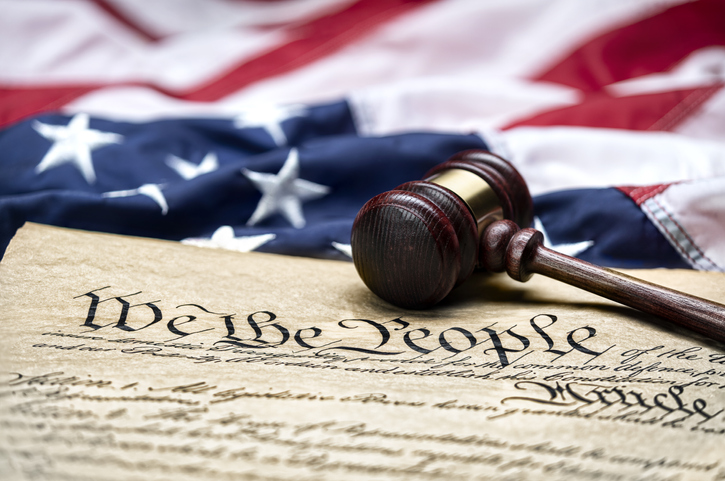The Biden administration threatens to invoke Section 4 of the Fourteenth Amendment to sidestep the longstanding federal debt ceiling in a way that would increase the power of the executive branch. Although largely responsible for the modern debt ceiling, Franklin Delano Roosevelt (FDR) would be proud. A US Supreme Court (SCOTUS) case decided in FDR’s first term in office, Perry v. United States (294 U.S. 330, 1935), nevertheless brings Biden’s position into serious question.
According to Harvard Law professor Laurence Tribe (or perhaps some yet-unidentified person he plagiarized), the federal debt ceiling is unconstitutional because Section 4 of the Fourteenth Amendment guarantees that the United States government will never default on its debts. It clearly states, after all, that “the validity of the public debt of the United States, authorized by law … shall not be questioned” [emphasis added].
As I argued in The Daily Caller two weeks ago, and as the Wall Street Journal just argued, the US government cannot lawfully repudiate its debts or willfully default on them. Section 4 means that the Treasury has to service all the government’s bonds and pay Social Security and certain other debt-like obligations before it can make other payments, including to federal government employees. What Biden’s tribe (or is it Tribe’s Biden?) wants to do, apparently, is to issue debt not authorized by Congress so that it can continue normal federal government operations.
Perry arose because FDR decided to devalue the US dollar and to end the retail gold standard, ostensibly to cure the Great Depression. To implement the policy, the US government made it illegal for Americans to hold monetary gold and abrogated gold clauses in all contracts, public and private.
Gold clauses gave bondholders the option to insist on repayment in gold instead of dollars. Their goal was to protect lenders in the event that the domestic price level became untethered from the international price of gold, as had occurred during the Civil War and the American Revolution when dollar-denominated fiat paper money depreciated, vis-a-visgold.
Gold clauses became common following the Civil War and even some US Treasury bonds, including the famous Liberty Bonds issued to fund the Great War, contained them. Perry owned $10,000 of those bonds, which clearly stipulated that “the principal and interest hereof are payable in United States gold coin of the present standard of value.”
Perry sued the government for his gold, or its equivalent in fiat dollars (over $16,900), and lost. In a decision many consider a travesty, SCOTUS held that the abrogation of the gold clause in public contracts would have been unconstitutional if gold had remained lawful money but claimed that Perry, and by extension other public creditors, suffered no loss given that monetary gold was no longer legal.
The merits of the Court’s conclusion aside, the plaintiff’s argument is telling regarding the understanding of Section 4. Perry’s attorney argued that it made the government’s debt “inviolable” and that its meaning was so clear to the generation that ratified it that “until recently, no attempt has ever been made by Congress to attack the validity of the public debt.” Clearly, then, Perry’s lawyer did not think that the 1917 law that created the first debt ceiling, which not coincidentally was part of Congress’s authorization of the Liberty Bonds in question, was an affront to Section 4, or he would have argued that point. He did not, though, because he wasn’t stupid. Article I, Section 8, Clause 2 of the US Constitution clearly gives Congress, and only Congress, the power to borrow money “on the credit of the United States.”
If POTUS is truly concerned about a debt default, he can also borrow money, but only on his own credit, perhaps by pledging the proceeds from his foreign business deals and mansions as collateral, and then donate it to the US Treasury. That won’t happen, of course, but POTUS could reduce uncertainty by simply pledging to sign whatever bill Congress passes. That, though, would not make FDR proud.
Originally published by the American Institute for Economic Research. Republished with permission under a Creative Commons Attribution 4.0 International License.
For more from Budget & Tax News.
For more public policy from The Heartland Institute.
